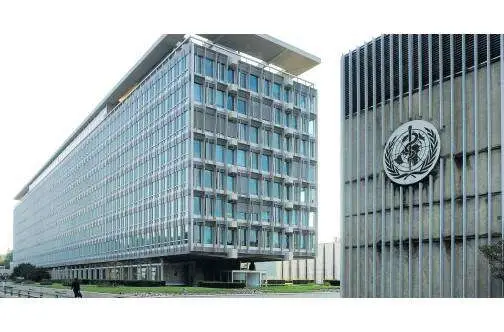GENEVA, Switzerland — The World Health Organization (WHO) is facing significant disruptions to critical health programs worldwide following a freeze on U.S. foreign aid, a move that has sent shockwaves through global public health initiatives.
In a press briefing on Tuesday, WHO spokesperson Margaret Harris acknowledged that the sudden halt in U.S. funding—a historically crucial lifeline for many health programs—has already created major shortfalls, particularly in disease surveillance efforts.
“The global measles surveillance network was entirely funded by the U.S., and now there’s a big shortfall,” Harris admitted. “But we are not going to let it collapse.”
With mounting concerns over the impact of the funding freeze, WHO officials are urgently seeking alternative funding sources to sustain operations. Harris emphasized that while the situation is challenging, the agency is determined to continue delivering aid to vulnerable populations.
Ebola Response Under Strain
Janet Diaz, who leads WHO’s emergency health response efforts, highlighted the consequences of the funding freeze on the Ebola outbreak in Uganda. The U.S. had been a key contributor to outbreak response logistics, including biological sample transport and surveillance operations.
“WHO has had to step in where it usually doesn’t,” Diaz said. “We’ve allocated $3.4 million from our emergency contingency fund, but the gap remains significant.”
Beyond Ebola, infection prevention and sanitation efforts in crisis zones have also taken a hit, raising fears of worsening conditions in fragile health systems.
Navigating the Funding Crisis
As WHO scrambles to keep programs running, officials are weighing tough choices. Diaz noted that the organization is now forced to reconsider how to “deliver with less” while forging new partnerships to fill financial gaps.
Despite the uncertainty, Harris remained resolute. “We won’t let the people of the planet down,” she said. “We’re not just going to sit here and give up.”
Political Fallout and the Musk Controversy
The U.S. aid freeze was triggered by an executive order signed by President Donald Trump on January 20, halting all foreign aid for 90 days while the administration reassesses spending priorities. However, the freeze has extended beyond that period, with widespread cuts that advocacy groups warn could endanger millions.
The decision has also sparked a heated debate on social media, with billionaire entrepreneur Elon Musk defending the move. “No one has died as a result of a brief pause to do a sanity check on foreign aid funding,” Musk posted on X.
WHO officials, however, pushed back on such claims, stating it is too early to measure the full impact of the funding cuts. “You wouldn’t be able to quantify something like that for quite some time,” Harris responded.
As the world waits to see how deep the effects of the funding freeze will run, WHO remains in crisis mode—juggling an escalating health emergency with an uncertain financial future.

